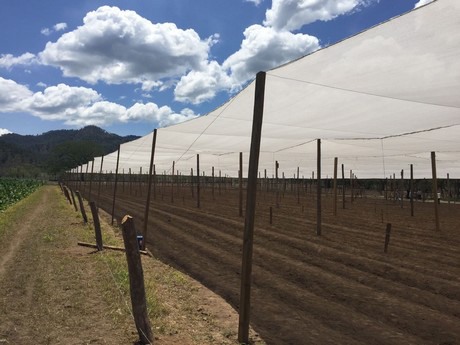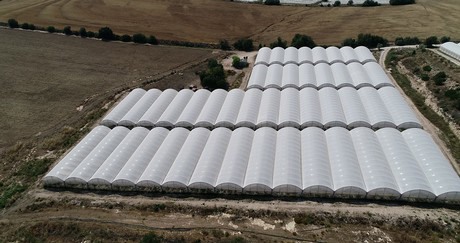June 2019 was the hottest June ever in Europe, but the trend is certainly towards new records. For this reason, effective screens for high-tech greenhouses are becoming increasingly important.
Arrigoni offers two solutions that can help farmers adapt to climate changes in recent years, to produce more and safe food and reduce harmful emissions into the atmosphere.

Across Europe, June 2019 was the hottest ever. According to the data released by “Copernicus”, the climate change service of the EU's satellite earth observation program, the average temperature was over 2 degrees above the standard, also due to the heatwave that in the last days of this month hit countries like Italy, France and Spain, with temperatures 6 to 10 degrees above average.
In other words, this is a clear and objective sign that profound climate changes are taking place, with extremely significant consequences in agriculture.
Specifically, the solutions proposed by the company are Prisma and Robuxta, ranges of thermo-reflective screens able to reduce the temperatures inside every greenhouse and to lengthen the crop cycles accordingly. Both these solutions are mainly used in the cultivation of Solanaceae (tomatoes, peppers, aubergines, etc.), baby leaf salads and berry fruits.
The evidence on the effectiveness of the improvements obtained with the Arrigoni screens are now many. One of these came from Rosario Spataro, owner of the Spataro farm in Ispica (Sicily).
“We are specialized in organic greenhouse cultivation of tomatoes of different varieties and types, from Marinda to Pachino, from Datterino to Costoluto. In our 78 hectares, we also produce melons, aubergines, cucumbers, peppers and other vegetables. Until a couple of years ago", Spataro says, "to defend our crops from excessive radiation and from high temperatures we simply tried to shade. The results were relative, so much so that at some point in the season it was unthinkable to continue with production. Since last year, on the other hand, we installed Arrigoni's Prisma LDF nets and things have changed significantly, with less than 8 - 9 degrees of temperature inside the greenhouses and soft radiation that allows us to prolong the production cycles, arriving until the middle of summer”.

Prisma, in particular, is a range of protective screens that optimize light diffusion while ensuring temperature control for high-tech greenhouses. In field tests, with this solution Arrigoni obtained to spread the light evenly around the plant, even in the lower parts. Damage from sunburns is therefore reduced and the content of polyphenols in vegetables is improved. The lower temperature also facilitates the workers.
Characterized by high resistance to abrasion, Robuxta screens are specially designed for use on tensile structures. Chains and wefts are made with monofilament, with a second weft made from tape. This additional monofilament protects the weft tape and prevents the latter from damages made by posts and cables of the tensile structures. The positive effects that this solution produces can be summarized in a series of key concepts: high mechanical strength; better light distribution around plants; better results in the homogeneous development of plants thanks to the white color (less losses and greater PAR irradiation); right light level even for plants with reduced need for irradiation; less damage due to direct radiation thanks to the diffusion and reflection of infrared rays.
“Climate and weather", comments Milena Poledica, PhD agronomist and researcher with Arrigoni, "influences cropping area, intensity and yield in different ways. Rising temperatures and the changing global climate are no longer just hypothesizes but a reality for many producers. Technology can significantly modulate these influences. Advances such as improved varieties withstand to drought, farming methods that save water and reduce the need for fertilizer, climate information services can reduce the risk of negative climate change impacts on agriculture.
"In this context, new solutions from Arrigoni company help farmers adapt to weather challenges in recent years while producing more food, and reduce emissions as much as possible”.

